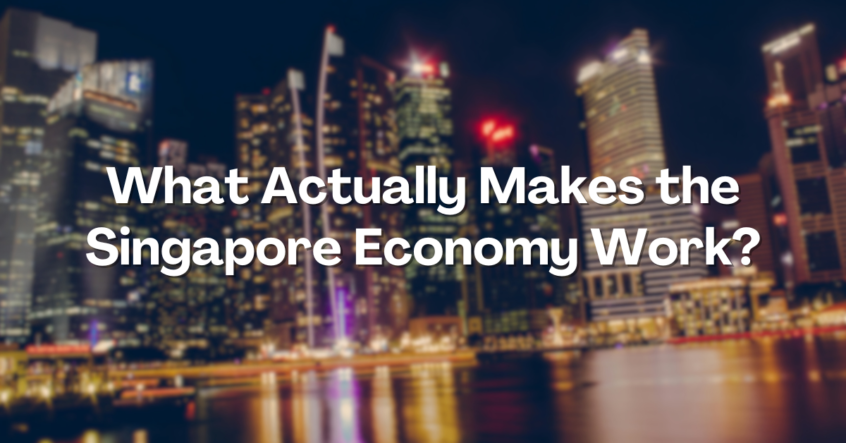Singapore’s economic success story is nothing short of remarkable. From a small, resource-scarce island to a thriving global hub for trade, finance, and innovation, Singapore’s economy is an exemplary model of efficiency, adaptability, and forward-thinking governance. In 2024, as the world navigates economic uncertainties, Singapore continues to stand out for its resilience and competitiveness. For students delving into this fascinating subject, understanding the factors behind Singapore’s economic success is essential—and this is where economics tuition in Singapore plays a pivotal role in providing deeper insights and academic support.
The Pillars of Singapore’s Economy
Singapore’s economy thrives on several interconnected factors, including strategic policies, skilled human capital, and an openness to global markets.
- Strategic Location and Trade
Situated at the crossroads of major trade routes, Singapore capitalizes on its strategic location to serve as a global trading hub. The country’s port is one of the busiest in the world, facilitating seamless import and export activities. Trade contributes significantly to Singapore’s GDP, with the nation actively participating in regional and global trade agreements like the CPTPP and RCEP. - Pro-Business Policies
Singapore is renowned for its business-friendly environment. Low corporate tax rates, minimal bureaucracy, and robust intellectual property protections attract multinational corporations. The government’s proactive stance in supporting startups and innovation also ensures that the economy remains dynamic. - Skilled Workforce and Education
Human capital is one of Singapore’s most valuable assets. Investments in education and skills development have created a workforce that is highly competent and adaptable. For students, this emphasis on education is mirrored in the demand for academic excellence, making economics tuition in Singapore a sought-after resource to better understand the nation’s economic framework. - Government Intervention and Long-Term Planning
The Singaporean government plays a key role in steering the economy. Institutions like the Monetary Authority of Singapore (MAS) and Economic Development Board (EDB) ensure sound fiscal and monetary policies, while long-term initiatives like the Green Plan 2030 demonstrate the country’s commitment to sustainable growth. - Openness to Globalization
Singapore’s open economy, with minimal trade barriers and a commitment to free markets, has fostered strong ties with international partners. Its ability to adapt to global economic trends, such as digitalization and green finance, ensures continued relevance in the global economy.
The Role of Economics Tuition in Understanding Singapore’s Economy
For students studying economics in Singapore, grasping these economic principles and their applications can be challenging. Economics tuition in Singapore serves as a bridge between theoretical knowledge and practical understanding, especially for those preparing for O-Level, A-Level, or IB Economics.
- Making Complex Concepts Accessible
Tutors simplify abstract theories like comparative advantage, market structures, or fiscal policies by relating them to Singapore’s real-world economic strategies. - Exam-Oriented Learning
Economics tuition focuses on helping students craft precise and insightful answers in exams. Tutors provide case studies and examples rooted in Singapore’s economy, ensuring relevance to questions on national and global economic issues. - Incorporating Current Affairs
Tuition sessions often include discussions on current trends, such as Singapore’s role in digital transformation or its green financing initiatives. This helps students link textbook knowledge to contemporary developments. - Critical Thinking and Application
Beyond memorization, economics tuition emphasizes analytical and evaluative skills. Students learn to assess the effectiveness of policies, such as Singapore’s tax incentives for businesses or its housing affordability strategies, and discuss their implications.
Challenges and the Future of Singapore’s Economy
While Singapore’s economy is robust, it is not without challenges. In 2024, issues like global supply chain disruptions, climate change, and economic inequality require careful management. Students studying economics can explore these challenges, analyzing how Singapore leverages its strengths to remain competitive while addressing vulnerabilities.
Conclusion
The Singapore economy works because of its strategic blend of good governance, forward-thinking policies, and a commitment to innovation. For students interested in understanding the intricacies of this economic powerhouse, economics tuition in Singapore offers invaluable guidance. By bridging theoretical concepts with real-world applications, economics tuition empowers students to appreciate and analyze what makes the Singapore economy a global success story—and prepares them to contribute to its continued growth.

